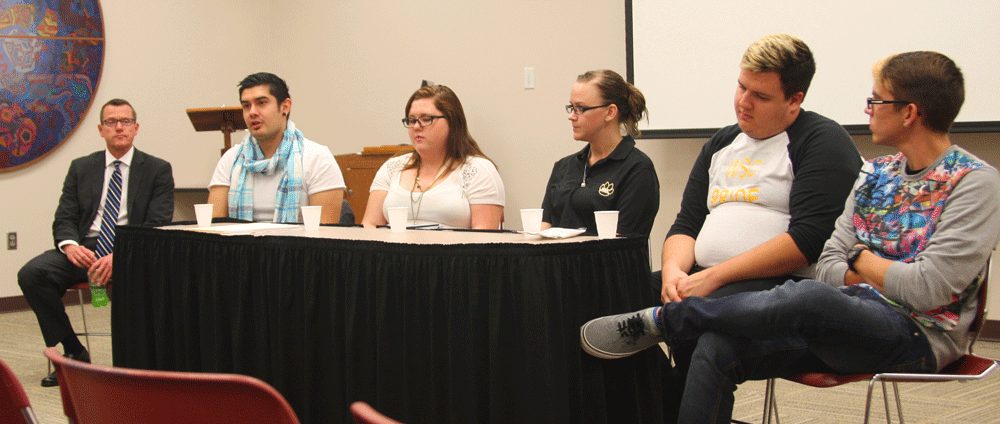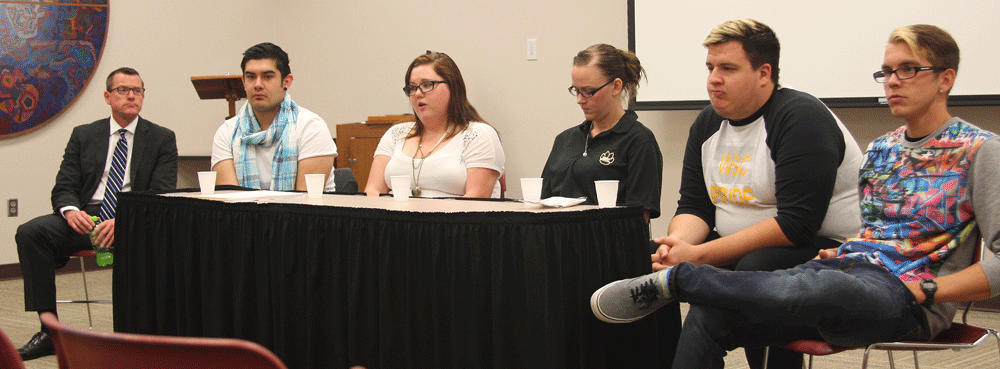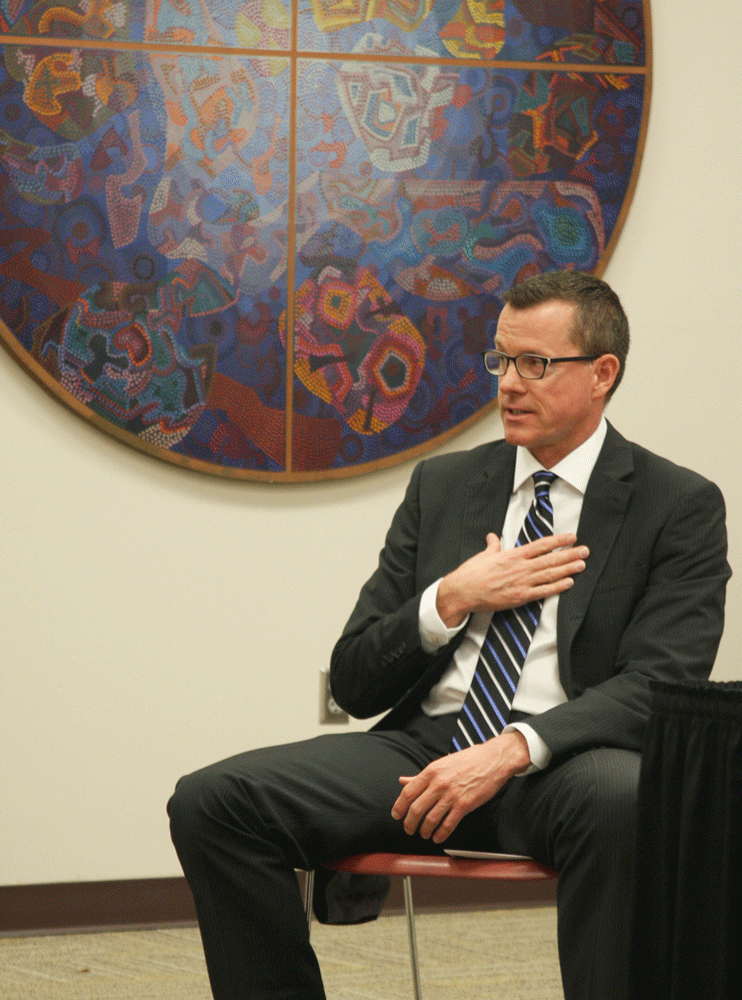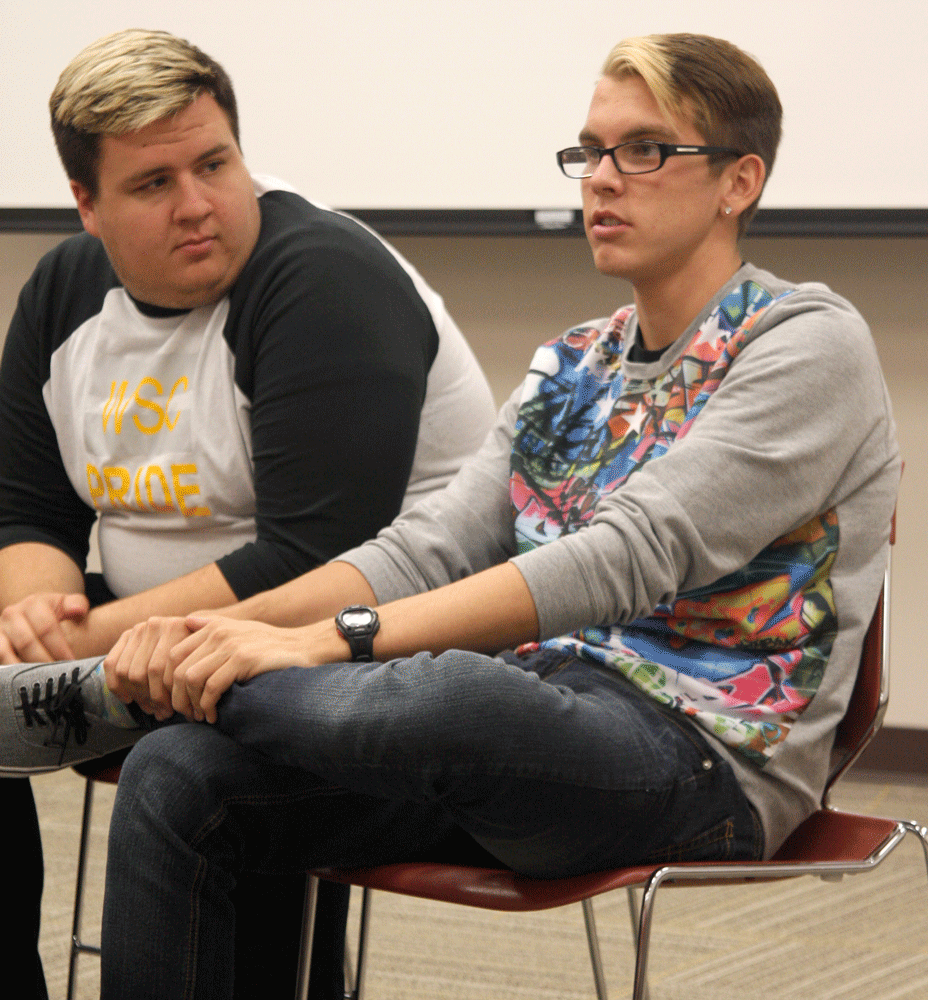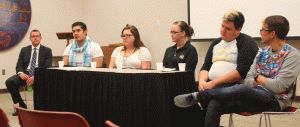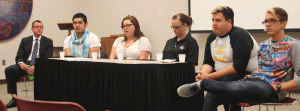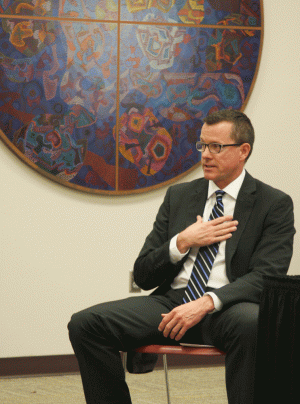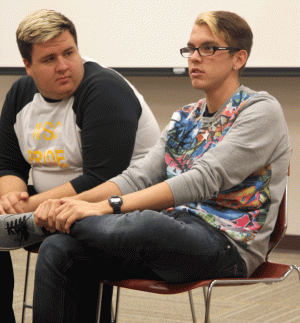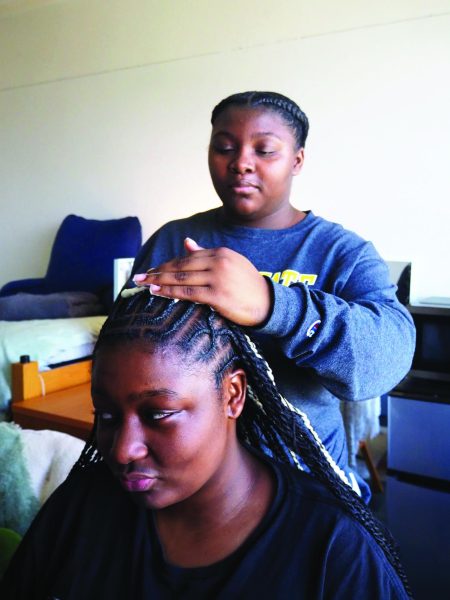Sexual orientation is not a choice, says visiting psychiatrist
Dr. Ron Holt gives presentation on the biological aspects of homosexuality
October 8, 2014
Wayne State College students, especially those who were raised in rural Nebraska, may know people, family even, who grimace at the mere mention of sexual orientation. Those who bark about human morality and bring religion into the conversation.
It is refreshing when somebody comes to campus and speaks openly and factually about the subject.
Dr. Ronald R. Holt, a WSC alumnus, is a clinical psychiatrist at Kaiser South San Francisco Medical Center. For the past 15 years, he has returned to WSC during homecoming each fall to talk about LGBT-related issues, suicide prevention and bullying.
This year was no exception. Last Thursday, Holt gave a presentation entitled “Gay Sexuality: Biology as a Destiny” at 9:30 a.m. in the Niobrara room, and at 2:30 p.m. he moderated and contributed to a discussion on bullying.
The morning presentation focused on genetic findings and biological theories regarding homosexuality.
He began by clarifying that homosexuality is not a choice, and that sexual orientation and sexual behavior are two different things.
When a person’s sexual behavior differs from their sexual orientation (ie: someone who is “in the closet”) it can cause emotional stress and harm.
The idea of a homosexual person having that one “gay gene” isn’t accurate either, despite those who wish they could simply find it and eliminate it.
Holt says that sexual orientation depends on a combination of multiple factors, including genes, hormones and a person’s epigenome (a series of chemical changes to DNA that can be altered by environmental conditions).
“Why don’t you have a high voice?” an audience member asked. “Most gay men seem to have a higher voice, but I wouldn’t have thought you were gay.”
“So, I passed?” Holt said, smiling. He explained that “passing” is a term sometimes used when a homosexual person appears heterosexual to others.
He continued by explaining that assumptions like gay men having a more feminine voice are only stereotypes.
Stereotypes can be considered a type of bullying.
The afternoon discussion included WSC students and PRIDE members Isaul Deanda, Lucas Fedde, Ben Robinson, Megan Schall and criminal justice assistant professor Lisa Ryherd.
The panel told personal stories about bullying issues they’ve encountered in the past.
Including the struggles of coming out as gay to unreceptive family members and being avoided at a bar because of having a “gay haircut.”
Audience members asked engaging questions, and the panel touched on issues of verbal abuse, gossip, online forums, the emotional stress and harm that goes along with forcing someone to “come out” as well as being in an environment which vocalizes their disapproval of homosexuality.
Holt said that as a clinical psychiatrist he feels compassion for bullies who pick on someone else for their behavior, because it is a sign that they are struggling with their own internal issues.
“You are what you hate,” Holt said. “It is a term that can be all too true.”
More information about PRIDE and Holt’s past presentations can be found on the website: audacityofpride.com.







